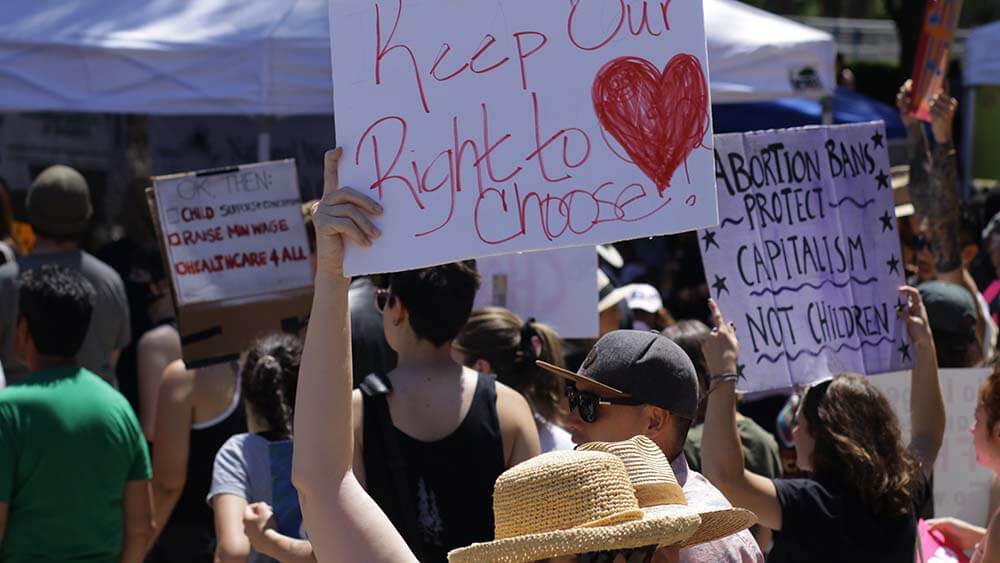
With the overturning of Roe v. Wade, event planners may face requests from their constituents demanding their events boycott host states that ban abortions. (Aiden Frazier on Unsplash)

Michelle Russell
When I spoke with ASIS International CEO Peter O’Neil about the talent shortage for Convene’s August cover story, he said that one of the changes accelerated by the pandemic is the expectation that organizations will take a stand on societal issues in order to attract and retain talent. Silence, he said, is not something the incoming workforce generations want from organizations they consider for employment. “They expect us to say something,” O’Neil said, “even if they take issue with it.”
The same goes for conference attendees. Planners now find themselves in a similar position with the overturning of Roe v. Wade as when their constituents demanded their events boycott host states that had passed the “bathroom bill,” which denies access to public toilets by gender or transgender identity.
For some, like Corinne Low, this issue, however, is not as much about making a political statement as ensuring the health of pregnant conference participants above all else. Low, an assistant professor at the University of Pennsylvania’s Wharton School, told The Chronicle of Higher Education that she drafted a letter to the American Economic Association to move its upcoming Allied Social Sciences Associations’ annual meeting from a state that bans abortions because it’s about “ensuring that we did not put pregnant people in a position where they had to choose between their physical safety and well-being and their career.” The letter collected more than 1,000 co-signers by July 1.
There are other event participants who have the opposite view — that withdrawing their conference from a particular destination sends the wrong message. Jessica Maddox, an assistant professor at the University of Alabama, told the Chronicle that calls to boycott conferences in states where abortions are illegal “are kind of an abandonment,” serving to divide people further and forsake “entire regions that need help, not inaction.”
Maddox said that she wished the focus was on what conferences can do for host cities rather than the other way around and that she has been disappointed that events she has attended haven’t taken more responsibility in giving back to their host cities. Similarly, Callie S. Kalny, a doctoral student at Northwestern University, told the Chronicle that she was relieved to receive an email from the Society of Behavioral Medicine stating that it would continue with plans to hold its 2023 annual meeting in Phoenix, where abortion access is limited. The society told members that it would put its energy and resources into engaging with the community and supporting Arizona-based advocacy groups, although what shape that will take has yet to be determined.
“We are all about using evidence to drive change, both at the individual level and at the organizational institutional-policy level,” said Margaret Schneider, the society’s president.
Hybrid Solution
One of the ways the American Economic Association plans to address members’ concerns about meeting in a destination that prohibits abortions
is to hold all first-round job-marketing interviews — a large draw of its conferences — online, according to The Chronicle of Higher Education.
It’s another example of how different hybrid event models can continue to meet constituents’ needs for all kinds of reasons. Read about a medical hub-and-spoke hybrid event in Italy during a COVID spike in the August Innovative Meetings story, “Prescribing a Hub-and-Spoke Approach.”
Michelle Russell is editor in chief at Convene.
